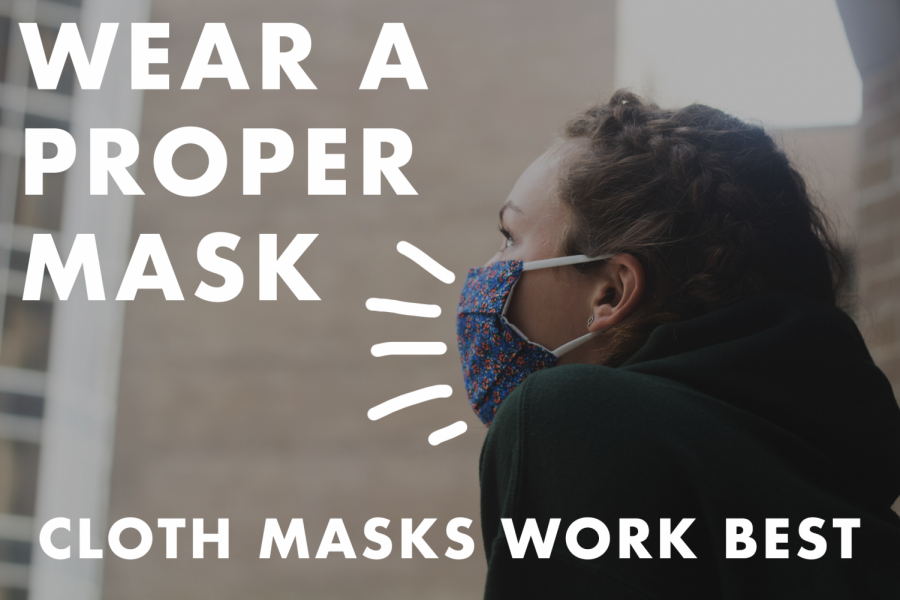Students’ face mask negligence prioritizes comfort over community
September 9, 2020
Prior to the start of the school year, the Tulane University administration promised students, parents, and staff that their COVID-19 protocols sufficiently addressed the risk of in-person instruction. Despite the administration’s demands that Tulane students sport a protective face mask while walking to and from class and at all times while on campus, there is little to no enforcement of these protocols.
Since returning to campus, hoards of students have regularly paraded down Broadway Street without masks or with their masks hung around their necks, off their ears, or exposing their noses. An Instagram page entitled Mask Up TU has documented these creative or nonexistent forms of wearing personal protective equipment. Though many students are angry at the page’s posting of images of students putting others at risk without their consent, it seems that some of these critics are angrier about being caught than they are about the negligence of their peers.
Overall, this attitude communicates both the carelessness of the student body and the apparent lack of communication from the administration regarding both proper mask-wearing and the efficacy of certain forms of personal protection, specifically neck gaiters.
While it is understandable that students find some conventional face masks uncomfortable, their choice to sport neck gaiters demonstrates a general ignorance.
Neck gaiters are not only ineffective at stopping the spread of the virus, but a recent study out of Duke University found they may even spread COVID-19 faster. According to the study, the neck gaiters may split larger droplets into smaller sizes which can linger in the air for longer periods of time. This means that infected students choosing neck gaiters may be contributing to an increased risk of exposure to the virus.
Since the beginning of quarantine, it has become easier and easier to obtain comfortable yet effective face masks. Students living on campus were provided with cloth face masks upon their arrival at Tulane. Yes, despite this privilege, some students opt for ineffective personal protective equipment and put their peers and staff members at risk. Regardless, the university has failed to educate students on the inefficacy of neck gaiters despite the communicative resources at their disposal.
While students may not be educated on the uselessness of neck gaiters at containing the coronavirus, they are well informed on the proper ways of wearing personal protective equipment. Yet, Tulane students seem to believe that beyond the campus gates, they are immune to the virus and thus not in need of a mask. This recklessness is telling of the Tulane community’s perspective of the pandemic and their disregard for the city of New Orleans.
Wearing a face mask is only partially effective in stopping the spread of the coronavirus. This semi-efficacy also requires proper mask-wearing techniques, social distancing and the use of medical-grade or thick cloth face masks. In reality, the most effective way to stop the coronavirus is staying at home, which was not an option for much of the student body.
While the decision on the part of the administration to hold in-person classes is reckless, the school has continuously reminded students of the necessity of masks and social distancing. Nonetheless, these reminders do not seem to stick as students choose comfort over containment.
The administration ought to have weighed the impact of human selfishness and error before deciding to proceed with in-person instruction. That being said, it is also the responsibility of the student body to fully comprehend the consequences of improper use of personal protection equipment and the choice to wear a neck gaiter. In the age of information, the burden falls both on the university and those in the community to perpetuate a culture that condemns bad behavior.
The threats issued by the administration have been more or less ignored by students as the university attempts to address greater offenses such as parties. Nevertheless, it is becoming clear that controlling the student body during a pandemic may be too large of a task for Tulane’s disciplinary system and campus culture to address.
In the Louisiana summer heat, wearing a mask is understandably undesirable. The coronavirus guidelines issued by the administration, however, clearly explain the need to wear a mask at all times when outside of one’s home. Students with the means to do so should explore face mask options that best suit their needs while still protecting themselves and the community.
If Tulane students do not yet have a grasp of the need to continue practicing social distancing, the student body will inevitably be sent home with massive consequences to the community prior to their evacuation. A continued flouting of the rules will only lead to a rise in cases.























Leave a Comment